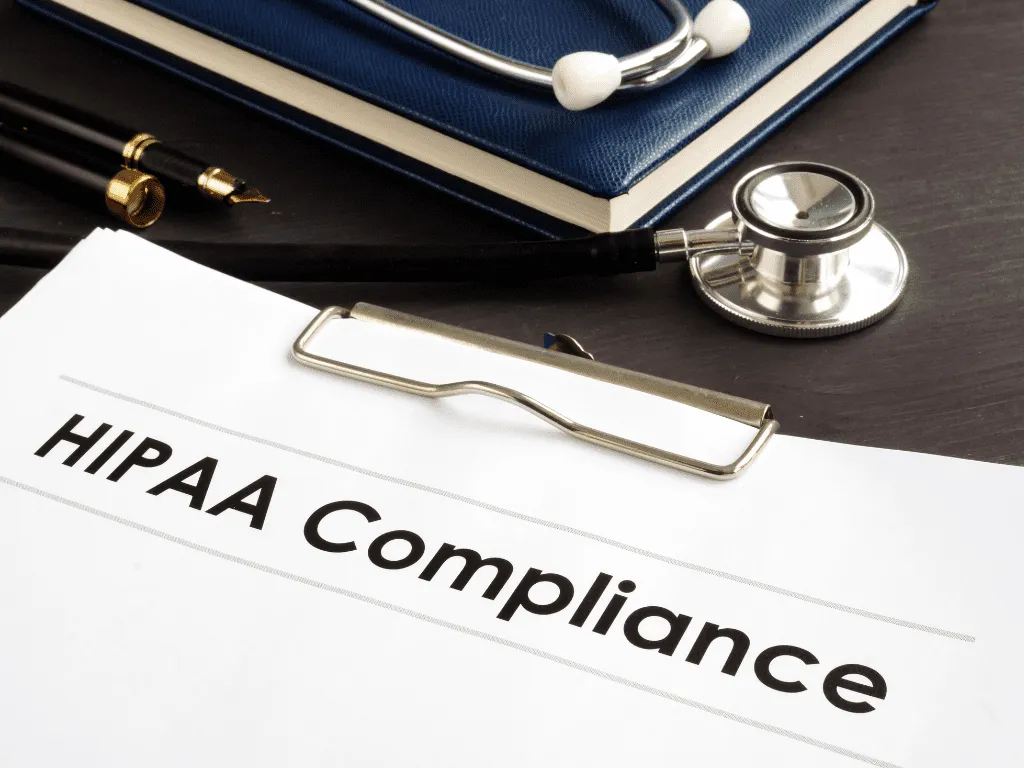Who Enforces HIPAA?

Curious about who enforces HIPAA? Knowledge of the authorities and agencies involved is crucial for healthcare professionals, organizations, and individuals.
This article breaks down the essential aspects of enforcing HIPAA regulations at the federal and state levels. We will also highlight the duties of healthcare organizations and the possible results of non-compliance.
The Significance of HIPAA Enforcement
Understanding the importance of HIPAA enforcement and HIPAA enforcers is essential. It's not just critical for healthcare organizations but also individuals. The reason is simple: it protects sensitive patient health information and holds healthcare institutions accountable for their actions.
HIPAA enforcement defends the confidentiality and security of the healthcare industry. It upholds patient rights and builds trust in healthcare systems. Non-compliance can lead to substantial penalties.
Federal Enforcement of HIPAA
At the federal level, two HIPAA enforcement authorities are notable: The Office for Civil Rights (OCR) and the Department of Health and Human Services (HHS).
The Office for Civil Rights (OCR)
The Office for Civil Rights (OCR) spearheads healthcare privacy by guarding medical information. Their primary duties include:
- Enforcing HIPAA standards through conducting investigations
- Reviewing compliance levels
- Punishing organizations that don't meet these standards
The Department of Health and Human Services (HHS)
Despite their broader responsibilities, the Department of Health and Human Services (HHS) also plays a crucial role in HIPAA enforcement. They set the standards and keep them updated.
When the OCR identifies a HIPAA violation, it's the HHS's job to enforce corrections and levy penalties when necessary.
The department also maintains resources for professionals and consumers to understand and comply with the law. The HHS has the utmost authority when it comes to reinforcing HIPAA at the highest level.

State-Level Enforcement of HIPAA
Two key entities oversee state-level HIPAA compliance and enforcement: the State Attorneys General and the State Health Departments.
State Attorneys General
Your partner in safeguarding patient information is the State Attorneys General. They have the power, granted by the HITECH Act of 2009, to take legal action when they suspect a violation of HIPAA rights.
They can sue entities not complying with HIPAA, resulting in severe penalties. Their role is to provide strong discouragement against non-compliance with HIPAA rules.
State Health Departments
State Health Departments also play a crucial part in upholding HIPAA regulations. They often work with the OCR to explore complaints and enforce the rules.
Additionally, they introduce state-level health privacy laws. These may provide additional safeguards beyond what HIPAA offers.
Healthcare Organizations' Role in Compliance
If you run a healthcare organization, you play a significant role in following HIPAA rules. Similarly important are both self-checking and making improvements as needed.
Self-reporting and self-auditing
It's essential to be proactive in maintaining HIPAA compliance. Start by regularly conducting self-audits and reporting any possible breaches or lapses. This approach allows for early detection and resolution of potential compliance issues.
Self-audits involve thoroughly examining all systems and processes for safeguarding personal health data. It's a chance to evaluate the effectiveness of current privacy and security steps.
Corrective action plans
When a breach or issue crops up, it's vital to put a corrective action plan in place. These plans fix the current problem and help prevent it from happening again. They need to be thorough and specific to the problem.
It's essential to review these strategies to confirm their effectiveness regularly. Achieving HIPAA compliance isn't a one-off event but a continuous process that needs your consistent focus and supervision.
HIPAA Enforcement Actions and Penalties
Breaking HIPAA rules can lead to serious repercussions. These might be Civil Monetary Penalties (CMPs), settlements, or resolutions. Let's break each one down for easier understanding.
Civil Monetary Penalties (CMPs)
If HIPAA rules are broken, CMPs can be issued by the OCR, a division of the Department of Health and Human Services.
Understanding the cost of a HIPAA violation is crucial. The penalty can range from $100 to $50,000, depending on its severity and whether any corrective steps were taken. Additionally, multiple violations of the same rule can result in a maximum yearly fine of $1.5 million.
Settlements and Resolutions
Sometimes, healthcare entities resolve violations with the OCR to avoid legal conflicts. It usually involves paying a substantial settlement and implementing a corrective action plan.
The OCR will continue monitoring the organization for a certain period to ensure they comply fully with HIPAA. They could face even more significant penalties if they violate the rules again during this period.

HIPAA Enforcement and Your Role
Understanding HIPAA compliance enforcement is crucial if you're a healthcare professional, part of an organization, or an individual. It isn't just about repercussions for breaking a rule. It's also about the complex systems in place at both federal and state levels that ensure everyone complies.
Every level of the healthcare industry has a role in reinforcing HIPAA regulations. It isn't simply to evade punishments; it's about maintaining integrity and trust within the industry.
So, always keep your knowledge about HIPAA enforcement up to date and ensure you're acting in accordance with the law.
Related Stories
What Is A HIPAA Medical Records Release Form?
HIPAA Infographic for Staff: A Visual Guide to Compliance
HIPAA Compliant Messaging API: Secure Healthcare Communication
View our Privacy Policy for more info.
